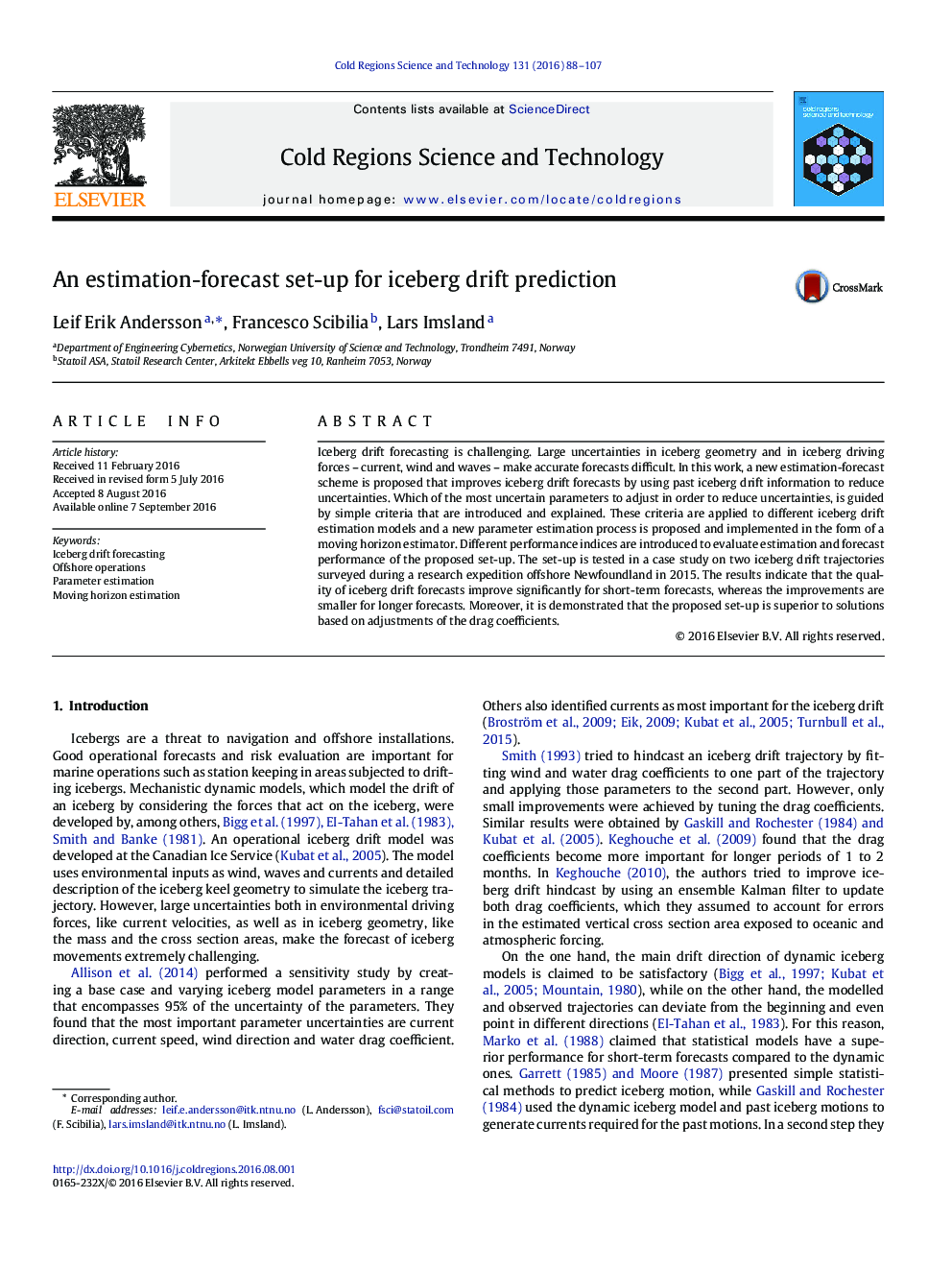| Article ID | Journal | Published Year | Pages | File Type |
|---|---|---|---|---|
| 4675590 | Cold Regions Science and Technology | 2016 | 20 Pages |
•An optimization-based approach for iceberg forecast is proposed.•An ancillary current to correct for errors in the current information is proposed.•Different performance indices to evaluate forecast performance are introduced.•Large improvements in short-term forecast are shown on two iceberg drift trajectories.•Superior to previous solution based on adjustments of the drag coefficients.
Iceberg drift forecasting is challenging. Large uncertainties in iceberg geometry and in iceberg driving forces – current, wind and waves – make accurate forecasts difficult. In this work, a new estimation-forecast scheme is proposed that improves iceberg drift forecasts by using past iceberg drift information to reduce uncertainties. Which of the most uncertain parameters to adjust in order to reduce uncertainties, is guided by simple criteria that are introduced and explained. These criteria are applied to different iceberg drift estimation models and a new parameter estimation process is proposed and implemented in the form of a moving horizon estimator. Different performance indices are introduced to evaluate estimation and forecast performance of the proposed set-up. The set-up is tested in a case study on two iceberg drift trajectories surveyed during a research expedition offshore Newfoundland in 2015. The results indicate that the quality of iceberg drift forecasts improve significantly for short-term forecasts, whereas the improvements are smaller for longer forecasts. Moreover, it is demonstrated that the proposed set-up is superior to solutions based on adjustments of the drag coefficients.
